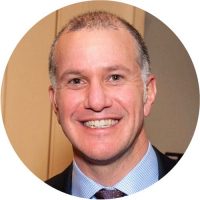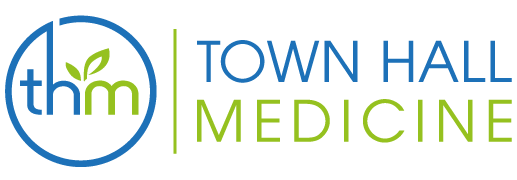THE MICROBIOME SUMMIT : The New Path to Health
Looking Ahead to the Future of Gastroenterology
Dr. Mark Silverberg, MD, PhD

What can we expect in the future for gastroenterology? How will our understanding of the microbiome influence this field of medicine? Dr. Mark Silverberg is a clinician scientist in gastroenterology with a PhD in genetics.
In this interview, Dr. Silverberg will show us how the microbes that make up our microbiome can have such far reaching effects throughout the entire body, and will provide some tips on how to take care of our microbiome in the here and now.
- Tracey:
- We are here at the University of Toronto with Dr. Mark Silverberg. Mark is a gastroenterologist who works at an affiliated hospital to the university, Mount Sinai. Thank you for joining me Mark.
- Mark:
- It’s great to be here, thanks for having me.
- Tracey:
- So as a gastroenterologist you are being thrust into the forefront of the new research on the microbiome. Can you explain to us what you see the role as a gastroenterologist with the new knowledge that we have – that we have this entire ecosystem living within our gastrointestinal tract that we never really paid any attention to before?
- Mark:
- Yeah sure, I almost think of the microbiome as another organ, it’s a new organ that has been discovered in recent years living in the digestive tract. Of course it is living in other parts of the body as well but what we are focused on is what’s living in the digestive tract and the amount of cells that are there really so dramatically greater than, the cells that I deal with every day in the gut in the liver that it really is a critical organ almost.
- Tracey:
- So given what we understand now do you think that gastroenterologists are going to play a role in trying to make the connections maybe with the rest of the body?
- Mark:
- I think so. I think particularly for the younger generation of training physicians and training gastroenterologists I think they will be quite interested in this, it’s a fascinating area. It really has systemic implications and it does seem to be a very natural fit to think that the microbiome of the gut really does connect to the field of gastroenterology very naturally I would say.
- Tracey:
- Right. So the future of gastroenterology, can you imagine that someone would come into you and say, my microbiome is not right how would I fix that?
- Mark:
- I think people could potentially be trained in that area that the gastroenterologist might focus on that topic and really become an expert on nutrition and the effects of nutrition on the gut bacteria. I could really see that being a specialty or a subspecialty of gastroenterology.
- Tracey:
- Right. Thinking about the far-reaching effects of the microbiome for example the world of psychiatry. Psychiatrists are often very disconnected from internal medicine, so knowing what we know now, that the microbiome is actually signaling up to the brain, via the metabolites, what do you see the role happening in a situation like that?
- Mark:
- Well I could envision, perhaps it’s a bit futuristic but I could envision a time when somebody with a neurologic condition or a cardiovascular condition, psychiatric problem to be sent for a stool analysis, a fecal analysis to see what their microbiome composition is and then perhaps be referred to a gastroenterologist or a specialist in that area to sort of evaluate their results and give some guidance as to what they should do to intervene and perhaps change their disease outcomes.
- Tracey:
- Yeah, absolutely. Being really that hub of medicine.
- Mark:
- Yeah for sure. I think that would be, it would make a lot of sense for gastroenterologists to be involved with that.
- Tracey:
- So Mark could you give us a deep dive into the gastrointestinal tract, into the microbiome and help us to understand how the microbiome is having these far-reaching effects on the rest of the body?
- Mark:
- Sure so bacteria live in many parts of the body, most of the bacteria are probably centered in the digestive tract but certainly there are many bacteria living in the skin and the pelvic organs, in the mouth. And what we think is happening is that either the composition of the bacteria that live there, whether it is the proportions of different species of bacteria or potentially the metabolites, the end products of bacterial metabolism that are impacting the body in different ways. So for example if bacteria that are pro-inflammatory meaning that they actually take in food that the person has eaten and produce byproducts that are pro-inflammatory, that could lead to those types of molecules disseminating into the body and generating an immune response that could target the gut but could also target the brain or other parts of the body that lead to a more, let’s say distant disease process then what is there and what is going on right in the gut itself.
- Tracey:
- Right. Can you give us some examples of what some of those disease might be that are part of that inflammatory process that you mentioned?
- Mark:
- Sure, so from an inflammatory standpoint we think about things like cardiovascular disease knowing that atherosclerosis may actually be a type of inflammatory disease. Parkinson’s disease. And then other chronic immune diseases like rheumatoid arthritis, psoriasis, inflammatory bowel disease. Those are conditions where the immune response is really revved up and attacking parts of the body that really it shouldn’t and we do think that a lot of that drive or that initial trigger or inciting event is generated in the gut bacterial contents.
- Tracey:
- Is there any way to know on an individual level, in personalized medicine that this is happening to a certain person?
- Mark:
- That’s really the holy grail, I mean that’s what we would like to do is be able to analyze a given individual’s microbiome and take it in the context of their family history, their genetic background and sort of put all that together and say what is that individuals disease risk and try to intervene to prevent it. We aren’t really there yet unfortunately we’ve got a little more work to do to get there but I think we are starting to understand basic concepts of what type of bacteria and what metabolites perhaps are generating either a disease risk or a disease benefit.
- Tracey:
- And specifically being a gastroenterologist, what do you see as a person maybe should be doing to try and prevent some of these things, the sequelae of the inflammation?
- Mark:
- Right so to get into what we can tell people now it is a little challenging I think it is very hard to be precise. I think one of the general concepts that I tried to convey is that we want to enrich the diversity of our microbiome. That we really want to make sure that all the bacterial species are well represented and we don’t have isolated increases or decreases in relevant bacteria. The way we try to accomplish that is try to encourage people to have a diet that is high in fruits and vegetables, lower in animal proteins and saturated fats and that doesn’t mean it has to be completely exclusive or extreme but just in general terms that is some of the things that I tell people.
- Tracey:
- Do we have any information yet to tell us how much fiber we should be having in a day?
- Mark:
- That’s a real challenge. Fiber is really terrific, it helps in many ways, it encourages good bowel regularity and emptying of stool so that people don’t get constipated, seems to control sugar metabolism very well so I am not sure that there is an exact amount it probably is again, very personalized and different for different individuals.
- Tracey:
- Great, fantastic. Well thank you so much for taking the time to come and speak with us today.
- Mark:
- You’re welcome, it’s been a pleasure.



